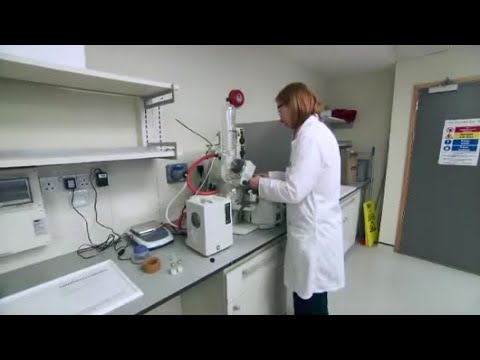Explore the World of Haematology: Job Description and Salary

Haematologist Job Description Template
Haematologist Job Description A haematologist is a medical professional who specializes in the diagnosis, treatment, and prevention of diseases and disorders related to blood and blood-forming tissues. They play a crucial role in managing conditions such as anemia, leukemia, lymphoma, and various clotting disorders. The primary responsibilities of a haematologist include conducting thorough medical examinations, interpreting laboratory tests and diagnostic imaging results, and formulating appropriate treatment plans. They may also perform bone marrow biopsies and transfusions, as well as administer chemotherapy and other medications. Haematologists collaborate closely with other medical specialists, such as oncologists, to provide comprehensive care for their patients. In addition to clinical duties, haematologists often engage in research and teaching activities. They contribute to ongoing medical advancements by participating in clinical trials and publishing research papers. They also educate medical students, residents, and other healthcare professionals about the latest developments in the field of haematology. Two important qualities for a haematologist are attention to detail and empathy. They must have a keen eye for identifying subtle abnormalities in blood samples and diagnostic tests. Additionally, haematologists must possess strong communication and interpersonal skills to effectively communicate with patients and their families, as blood disorders can be complex and emotionally challenging to deal with. In conclusion, haematologists play a vital role in diagnosing and treating various blood disorders. Their expertise and dedication contribute to improving the quality of life for patients and advancing medical knowledge in the field of haematology.Haematologist Responsibilities
Haematologist Requirements
How Much Does A Haematologist Make?
Haematologist Salary
| Country | Salary Range |
|---|---|
| United States | $101,000 – $335,000 |
| United Kingdom | £38,000 – £102,000 |
| Australia | AUD 120,000 – AUD 300,000 |
| Canada | CAD 125,000 – CAD 300,000 |
A haematologist, also known as a hematologist, specializes in the diagnosis and treatment of blood disorders. Their role is crucial in the healthcare field as they help manage conditions such as anemia, leukemia, and hemophilia. The salary of a haematologist varies depending on factors like experience, qualifications, and location. In the United States, the average salary ranges from $101,000 to $335,000 per year. In the United Kingdom, haematologists earn between £38,000 and £102,000 annually. Similarly, in Australia, the salary can range from AUD 120,000 to AUD 300,000, while in Canada, it is between CAD 125,000 and CAD 300,000. It’s important to note that these figures are approximate and can vary based on individual circumstances.
Haematologist Salaries by Country
Top Paying Countries for Haematologist
| Country | Average Salary (USD) |
|---|---|
| United States | 350,000 |
| Switzerland | 300,000 |
| Australia | 250,000 |
| Canada | 230,000 |
| United Kingdom | 200,000 |
Haematologists in the United States earn the highest average salary of $350,000 per year, making it the top paying country for this medical specialty. Switzerland follows closely with an average salary of $300,000, while Australia ranks third with an average salary of $250,000. Canada and the United Kingdom complete the list with average salaries of $230,000 and $200,000 respectively.
A video on the topic Haematologist
Video Source : The Royal College of PathologistsInterview Questions for Haematologist
1. What is the role of a haematologist?
A haematologist is a medical specialist who diagnoses and treats disorders related to blood and blood-forming tissues.
2. What are some common conditions that a haematologist treats?
A haematologist commonly treats conditions such as anemia, blood clotting disorders, bleeding disorders, leukemia, lymphoma, and various types of cancers affecting the blood.
3. What diagnostic tests are commonly used by haematologists?
Haematologists commonly use tests such as complete blood counts (CBC), blood smears, bone marrow biopsies, genetic tests, clotting factor assays, and flow cytometry to diagnose and monitor blood disorders.
4. How do haematologists treat blood disorders?
Treatment for blood disorders may involve medication, blood transfusions, bone marrow transplantation, chemotherapy, radiation therapy, or targeted therapy, depending on the specific condition.
5. What is the significance of bone marrow in haematology?
Bone marrow is responsible for the production of blood cells, including red blood cells, white blood cells, and platelets. Haematologists often study bone marrow to diagnose and monitor blood disorders.
6. What are the risk factors for developing blood cancers?
Some common risk factors for developing blood cancers include exposure to certain chemicals or radiation, family history of blood cancers, certain genetic conditions, and a weakened immune system.
7. How does a haematologist differentiate between different types of anemia?
Haematologists differentiate between different types of anemia by evaluating the size and shape of red blood cells, measuring hemoglobin levels, and conducting additional tests to determine the underlying cause.
8. Can you explain the importance of blood clotting factors?
Blood clotting factors are essential for the formation of blood clots, which help prevent excessive bleeding. Haematologists evaluate clotting factor levels to diagnose bleeding disorders and determine appropriate treatment.
9. What are some potential complications of blood transfusions?
Potential complications of blood transfusions include allergic reactions, transfusion-related acute lung injury (TRALI), infections, and transfusion-associated circulatory overload (TACO).
10. How do haematologists contribute to the field of research?
Haematologists contribute to the field of research by conducting clinical trials, studying new treatment options, investigating the genetic basis of blood disorders, and exploring innovative therapies for various blood-related conditions.






